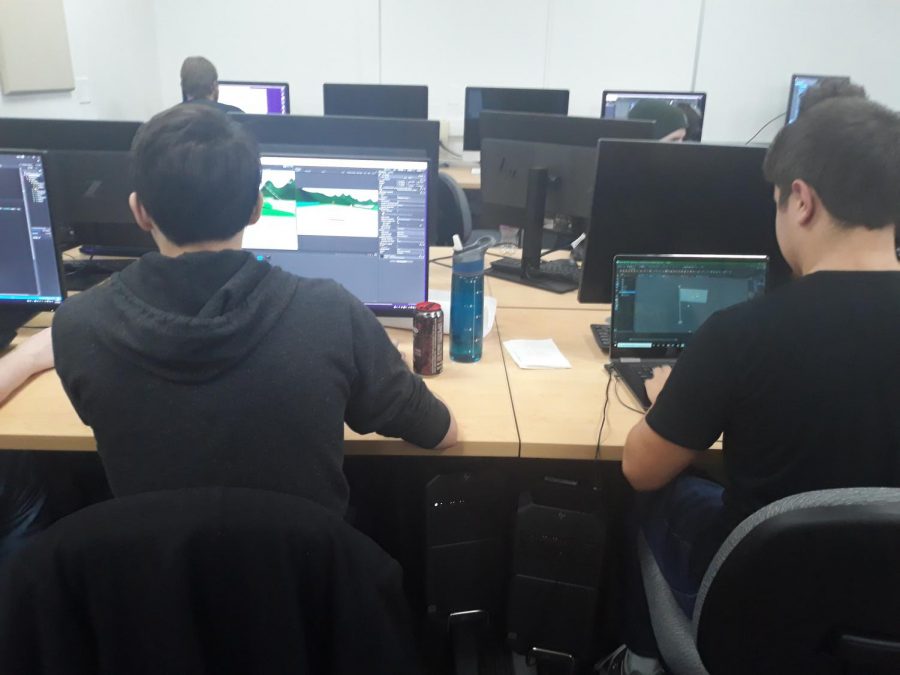Global Game Jam sparks creativity
Students Nikkos Horaitis and Lance Pearson ‘jamming’ at Global Game Jam.
February 10, 2020
The University of Wisconsin-Whitewater took part in Global Game Jam from Jan. 31 to Feb. 2 this past weekend. Professor Nick Hwang, along with a handful of students, participated in this 48-hour straight gaming creation.
Global Game Jam is the world’s largest game creation event taking place around the world. It is essentially a 48-hour period where every aspect of game design– art, computer programming, development– is all scrunched into a 48-hour period. This is not a competition but more a collaboration where people who have an interest in game creation, whether through art design, computer talent, or even gaming itself, can join together and work on producing something new.
Dillon Briggs, an MAGD major at the University of Wisconsin-Whitewater, enjoys the feeling of success he receives whenever he attends this event.
“The best part of this event is most certainly the feeling of accomplishment you get when this game works the way I want it too. Seeing it all come together, knowing I did it in 48 hours, it’s a great feeling hitting the milestones when things work,” said Briggs.
A group of three University of Wisconsin students used these 48 hours of ‘game jamming’ to create a video game they simply called ‘Fish Golf’, a game where players used fish in place of a golf ball. They created multiple levels, from one on the moon to another underwater.
Nikkos Horaitis, a MAGD major here at Whitewater, designed the artistic assets for their ‘Fish Golf’ game. This was his first year participating in the Global Game Jam.
“Everyone’s here to help. There’re alumni teachers, everyone who is just willing to aid. Teamwork is definitely the best option for this event. I don’t know how to program; it is essentially my utter weakness. Doing this by myself, the game wouldn’t even work. Being in a team, I’m able to use the artistic assets and the other guys are able to make the game actually run. We all come together and are able to make something as one,” said Horaitis.
Professor Nick Hwang, who has run this ‘physical location’ for the Global Game Jam since 2015, encourages any type of student to come for this event. Whether it’s a student who is simply involved with art, knows computer coding or even just plays games of any kind, anyone is welcome at the Global Game Jam event. It’s hosted once a year, normally near the end or mid-January.
“This has been around for almost 12 years now, and it’s really just a global community where we can all just ‘jam’ together for 48 hours in this collective effort. Even if we’re working on our individual games, it’s the sense of everyone, everywhere working on their games gives this sense of collectiveness and unity,” said Hwang.
The 48-hour period of ‘jamming’ normally begins on Friday with a short video of a keynote speaker, both giving advice and the ‘secret theme’ of the year’s event. It is encouraged that everyone has their game completed by Sunday so that they would be able to share and present it with essentially the entire world participating in this event. The games created go to a shared website where other participants of the Global Game Jam are able to play each other’s games, offer advice and tips, or even continue to improve their own game.
For more information on Global Game Jam, check out their website on https://globalgamejam.org/ or email Professor Nick Hwang about Global Game Jam here at the University of Wisconsin-Whitewater at [email protected].













